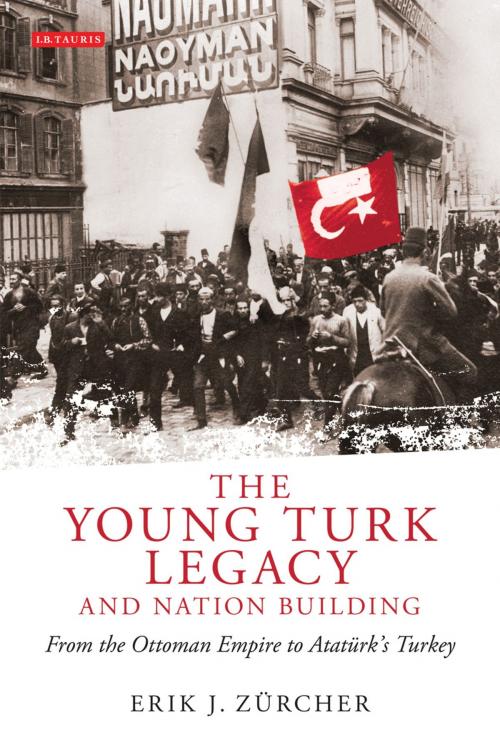The Young Turk Legacy and Nation Building
From the Ottoman Empire to Atatürk's Turkey
Nonfiction, History, Middle East| Author: | Erik J. Zürcher | ISBN: | 9780857731715 |
| Publisher: | Bloomsbury Publishing | Publication: | May 16, 2014 |
| Imprint: | I.B. Tauris | Language: | English |
| Author: | Erik J. Zürcher |
| ISBN: | 9780857731715 |
| Publisher: | Bloomsbury Publishing |
| Publication: | May 16, 2014 |
| Imprint: | I.B. Tauris |
| Language: | English |
The decline and eventual collapse of the Ottoman Empire and the founding of the Turkish republic were among the most momentous events of the early twentieth century. This book shows that, although traditionally considered to be a complete break with the Ottoman past, in fact, much of kemalist rhetoric in the early years of the Republic was also evident in the Young Turk movement, the coalition of reformers in the late Ottoman Empire.
The acclaimed scholar Erik J. Zürcher here constructs a grand narrative of Turkish history from the late Ottoman Empire to the foundation of the Republic of Turkey in 1923. his conclusions challenge the official view of the Turkish republic stemming from Atatürk's famous Nutuk, the speech in 1927, which laid down that the Turkish nation state, founded on modern principles of secularism, science and technology, represented a complete break with the past. Instead, Zürcher shows that atatürk's 'ideological toolkit' which included positivism, militarism, nationalism and a state-centered worldview, was shared by an earlier generation of reform-minded Young Turks in the final years of the ottoman empire. authoritarian rule, the one-party state, a legal framework based on european legal principles, an advanced bureaucracy and financial administration, military reforms and state control of Islam, can all be found in the rhetoric of the Young Turk movement, as can policies of demographic engineering.
The Young Turk Legacy and Nation Building details the attempts of the Young Turks to save their empire through forced modernization as well as the attempts of their Kemalist successors to build a strong nation state based on similar principles. The decade of almost continuous warfare between 1911 and 1922 provides the backdrop on which these events were played out and is therefore the primary focus of attention here. including important new insights on this eventful period in Turkish history and a strong revisionist narrative, this book will be essential reading for anyone interested in modern Turkey and the legacy of the Ottoman Empire.
The decline and eventual collapse of the Ottoman Empire and the founding of the Turkish republic were among the most momentous events of the early twentieth century. This book shows that, although traditionally considered to be a complete break with the Ottoman past, in fact, much of kemalist rhetoric in the early years of the Republic was also evident in the Young Turk movement, the coalition of reformers in the late Ottoman Empire.
The acclaimed scholar Erik J. Zürcher here constructs a grand narrative of Turkish history from the late Ottoman Empire to the foundation of the Republic of Turkey in 1923. his conclusions challenge the official view of the Turkish republic stemming from Atatürk's famous Nutuk, the speech in 1927, which laid down that the Turkish nation state, founded on modern principles of secularism, science and technology, represented a complete break with the past. Instead, Zürcher shows that atatürk's 'ideological toolkit' which included positivism, militarism, nationalism and a state-centered worldview, was shared by an earlier generation of reform-minded Young Turks in the final years of the ottoman empire. authoritarian rule, the one-party state, a legal framework based on european legal principles, an advanced bureaucracy and financial administration, military reforms and state control of Islam, can all be found in the rhetoric of the Young Turk movement, as can policies of demographic engineering.
The Young Turk Legacy and Nation Building details the attempts of the Young Turks to save their empire through forced modernization as well as the attempts of their Kemalist successors to build a strong nation state based on similar principles. The decade of almost continuous warfare between 1911 and 1922 provides the backdrop on which these events were played out and is therefore the primary focus of attention here. including important new insights on this eventful period in Turkish history and a strong revisionist narrative, this book will be essential reading for anyone interested in modern Turkey and the legacy of the Ottoman Empire.















